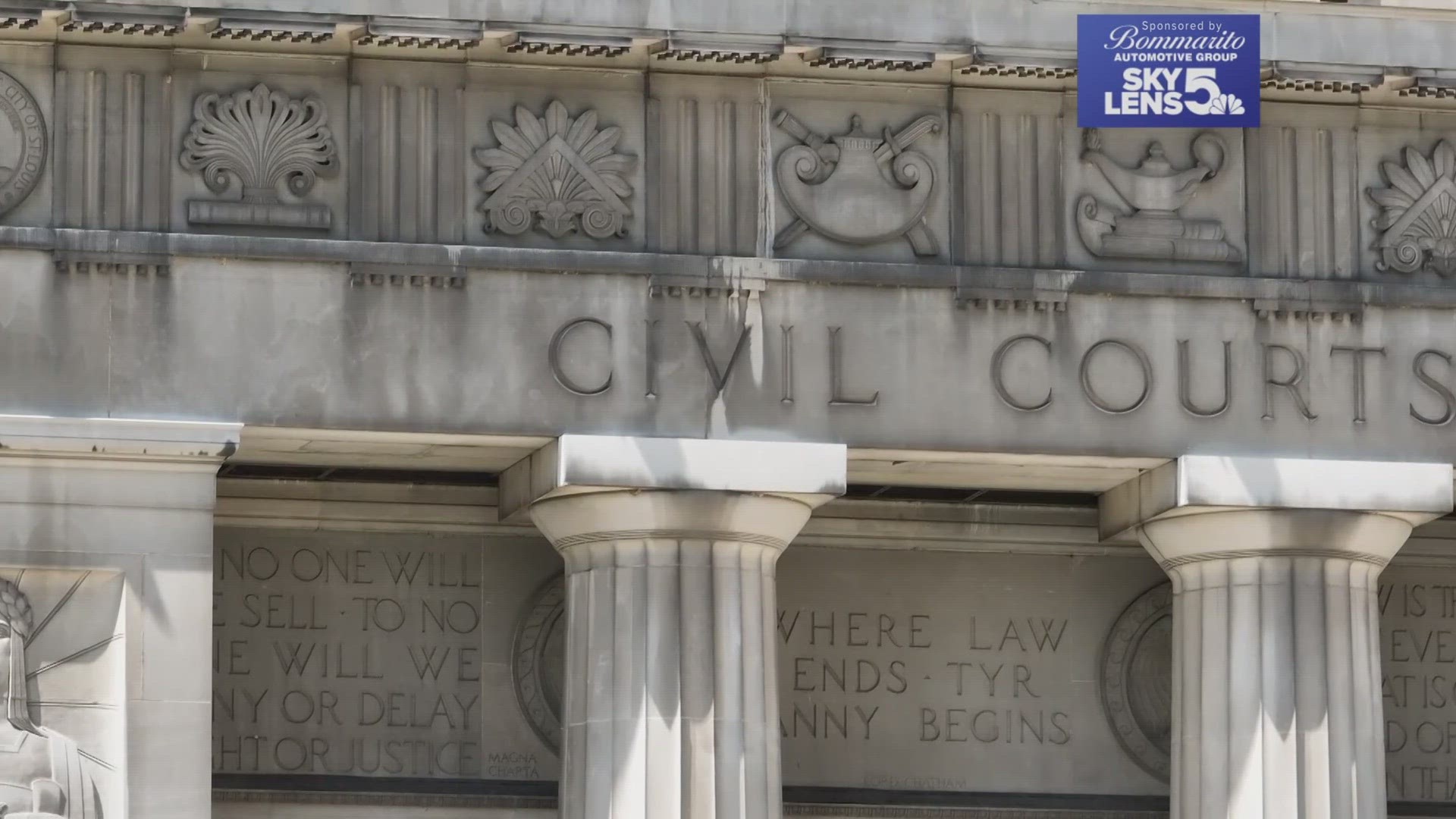ST. LOUIS, Missouri — Missouri Attorney General Andrew Bailey raised an interesting point in his final report detailing the dysfunction in former St. Louis Circuit Attorney Kim Gardner's office: she could technically run for re-election in 2024.
"There is nothing in our statutes that would prevent Ms. Gardner from seeking, and obtaining, the office of Circuit Attorney again in the future," Bailey wrote in his final report detailing the distractions and dysfunction in her office.
Bailey was brand new on the job as attorney general when he first pushed to expel Gardner from office in a high-profile, made-for-TV clash that never fully transpired. Gardner ultimately resigned before he could begin to pry details from her out into the open in court.
Now that she's gone, Bailey is using the case to argue for broader powers and a fast track to expel public officials and bar them from ever returning to office.
Under his 'Observations and Recommendations' in the report, Bailey prodded the Missouri legislature to "amend our laws to render a person ineligible to run for a particular public office after being removed from that particular office by quo warranto or after resigning from that particular office during the pendency of quo warranto proceedings."
While few people in the St. Louis political arena expect Gardner to mount a comeback, her campaign committee technically remains active. At last report, her campaign fund had $97,983.57 in cash reserves, though she hasn't raised a dime of new funds in 18 months.
Calls and emails to Gardner were not returned.
Candidates can begin to file paperwork to appear on the ballot starting next year.
David Mueller, a progressive defense attorney, has already thrown his hat into the ring to run for the job.
Gabe Gore, the current Circuit Attorney appointed by Governor Mike Parson, has "not decided" if he will run for a full four-year term, according to a spokesperson. Gore has, however, started to emerge at small local forums and engage with voters. In his addresses, he sounds much like a candidate testing the early phases of a campaign message where he sells his vision for the prosecutor's office.
"My focus today remains on doing what we can to hold people accountable for the commission of violent crimes in the city of Saint Louis," Gore told a small crowd of people at the downtown library on Monday night. "That has been my relentless focus. We are experiencing a violent crime epidemic in the city of St. Louis, and that is where our resources and energy have been most focused."
During an interview on Tuesday afternoon, Mueller predicted donors would start to back his campaign once they get a better sense of Gore's political views on the criminal justice system.
"Donors will realize that he will not commit to a progressive platform," Mueller said. "That's where I think people will either pick up what's going to happen in this election or not. He's going to have the same approach that he's always had his entire career: measured. He won't commit to anything. I think when you look at a lot of the statements that he's made, that he says a lot of words that I don't think mean anything, and I don't think that the press has done a good job in nailing him down on any of these issues."
Mueller's campaign fund shows he had $12,062 on hand at the time of last filing. He offered a tepid evaluation of Gore's handling of the office since he took charge five months ago.
"I think he's doing OK," Mueller said. "What we've got is somebody who is tough on crime. He's definitely charging more cases. He's definitely professionalized the office."
Bailey's report went beyond his investigation into Gardner's professional conduct and took aim at her discretion as a prosecutor.
"Ms. Gardner’s office was not charging defendants with armed criminal action, even when the defendant was charged with committing a felony, and where the defendant committed that felony by, with, or through the knowing use of a deadly weapon or dangerous instrument," his report stated.
Bailey elaborated on this policy disagreement in a Monday interview with 5 On Your Side's I-Team reporter Christine Byers.
"She'd completely stopped charging armed criminal action, which is one of the best tools that prosecutors have to carry a mandatory minimum against violent offenders who are using weapons and dangerous instruments to commit crimes on our street," Bailey argued.
"Mandatory minimums drive crime. They do not solve it," Mueller parried.
Mueller defended the data-driven approaches advocated by the George Soros-backed Vera Institute, which had previously funded Gardner's political ambitions.
"(Bailey) acknowledges that Kim Gardner tried to run a data-driven office with the Vera Institute," Mueller said. "One of the things that he doesn't really get into, doesn't dispute, is the quality of that data."
Mueller said he would consider charging armed criminal action in cases where he found it might provide leverage to obtain a guilty plea, but generally opposed the idea of combining it with other charges to stiffen or lengthen the prison sentence.
"What Kim Gardner was trying to do was not charge as many armed criminal action cases because you already have the robbery in place," Mueller explained. "What the armed criminal action does when you double charge it, you have the ability to stack charges. So instead of just a robbery which carries a maximum punishment of 30 years, you have the robbery and the armed criminal actions to be facing up to 60."

